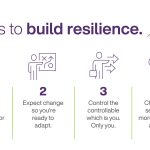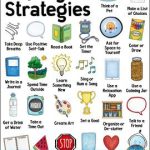
Childbirth is a beautiful and transformative experience for any woman. However, it can also take a toll on the body. Postpartum recovery is an essential phase that allows new mothers to heal and adjust to their new roles. This article delves into the physical and emotional aspects of postpartum recovery, providing insights into how women can navigate this crucial period.
Physical Recovery
After giving birth, a woman’s body goes through significant physiological changes. These changes can manifest in various physical discomforts and require adequate rest and care. Here are some key aspects of physical recovery:
1. Uterine Contractions
The uterus, also known as the womb, expands during pregnancy to accommodate the growing baby. After childbirth, the uterus undergoes contractions to return to its original size. These contractions can cause pain and discomfort, similar to menstrual cramps. Applying a warm compress or taking over-the-counter pain medication recommended by a healthcare professional can help alleviate this discomfort.
2. Perineal Healing
The perineum, the area between the vagina and anus, often undergoes stretching or tearing during childbirth. This may result in discomfort, swelling, or stitches. Healing the perineum involves gentle cleaning with warm water and using a squirt bottle after using the restroom. Applying ice packs or warm compresses can alleviate swelling, while sitting on a cushion or donut-shaped pillow can reduce pressure on the area.
3. Breast Care
If a woman chooses to breastfeed, her breasts may become engorged and tender. To promote healing and prevent infection, it is crucial to gently clean and air-dry the nipples after each feeding. Applying lanolin cream or other recommended nipple ointments can also soothe soreness. Women should wear supportive nursing bras to provide comfort and prevent breast sagging.
Emotional Recovery
Postpartum recovery encompasses not only physical healing but also emotional well-being. The hormonal shifts after childbirth, coupled with the demands of parenthood, can make the postpartum period emotionally challenging. Here are some strategies for emotional recovery:
1. Rest and Sleep
Getting sufficient rest and sleep is vital for both physical and emotional well-being. New mothers should aim to sleep when the baby sleeps and ask for help from their support system. Adequate rest allows the body to heal and promotes emotional balance.
2. Accepting Help
Many women feel the pressure to handle everything themselves after giving birth. However, accepting help from partners, family members, or friends is essential. Delegating tasks, such as cooking or cleaning, allows new mothers to focus on bonding with their newborn and taking care of themselves.
3. Emotional Support
Seeking emotional support from loved ones or joining postpartum support groups can be instrumental in the recovery process. Sharing experiences, concerns, and emotions with others who have gone through similar experiences provides reassurance and understanding.
Creating a Supportive Environment
Support from loved ones plays a crucial role in postpartum recovery. Creating a supportive environment can significantly contribute to a woman’s physical and emotional healing. Here are ways to cultivate a supportive environment:
1. Open Communication
Encouraging open communication between partners is vital during the postpartum period. Partners should actively listen, express empathy, and validate the new mother’s experiences. Honest and compassionate conversations can strengthen the bond and provide a sense of emotional security.
2. Shared Responsibilities
Partners should actively participate in newborn care and household responsibilities. Sharing responsibilities allows the new mother to have moments of self-care and rest. Partners can also help with breastfeeding, diaper changes, or soothing the baby, fostering a sense of unity and shared parenting.
3. Encouragement and Affirmation
Positive reinforcement and affirmation are essential for a new mother’s emotional well-being. Complimenting her efforts, providing reassurance, and expressing gratitude can boost her self-esteem and create a positive atmosphere.
Conclusion
Postpartum recovery is a crucial phase for new mothers as they heal physically and emotionally. Understanding the physical changes, seeking emotional support, and creating a supportive environment are vital components of this process. Remember, each woman’s postpartum journey is unique, and it is essential to listen to one’s body and seek professional guidance when needed. With care, support, and patience, women can embrace motherhood and embark on a beautiful postpartum healing journey.







